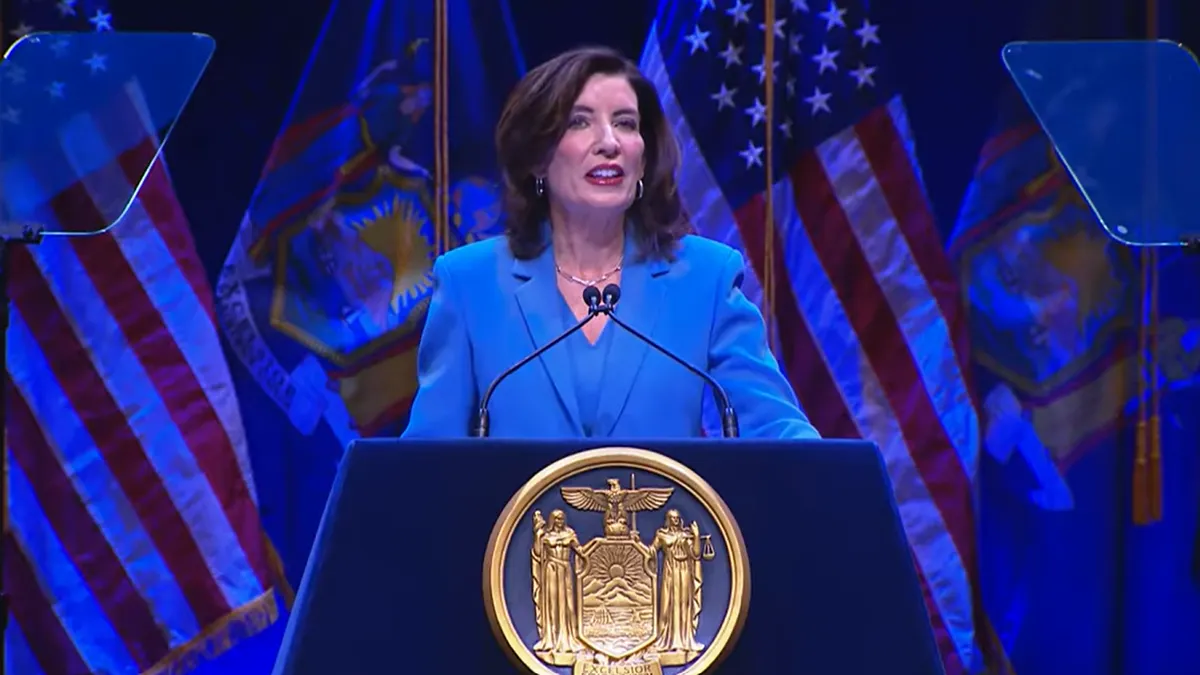For payments processors fighting a rising flood of fraud, artificial intelligence is a key weapon, according to a trade group that represents such service providers.
The American Transaction Processors Coalition has urged Congress members and staff to avoid regulating AI in any way that would hamper payments companies’ use of the evolving tool, said West Richards, the group’s executive director. That’s because payments companies will increasingly depend on AI to fight criminals who are tapping the technology for wrong-doing, he said.
The issue surfaced this week as Congress members debated the budget and spending reconciliation bill, including a provision that would have prohibited states from regulating AI for ten years. On Tuesday, that moratorium was stripped from the bill in a 99-1 Senate vote, preceding passage of the entire bill by that chamber. There is no federal regulation that is specific to artificial intelligence.
The ATPC, which represents card company American Express, payments firm Deluxe and processor Fiserv, among others, had no official position on the AI provision that was taken out of the bill, but allowing states to weigh in with AI regulation may not be what the coalition had in mind.
“The main thrust is, do not handicap us with AI, because we need AI to fight AI,” Richards said in an interview last month, before the Senate vote. “These cyber-attacks and these fraud attacks, more and more are being AI-driven, so we need flexibility in utilizing AI to combat those threats.”
Richards noted companies have been using earlier forms of AI for years, but they’re eager to harness more advanced versions. AI can sort through payment transaction data much faster than humans, and more quickly spot signs of fraud and identify suspect patterns, he said.
“Fraud is a big issue that we’re raising the alarm on in D.C.,” Richards said.
Congress members on both sides of the aisle have been concerned about increased payments fraud threats. Senators sponsored legislation last month that would create a task force to study payment scams and suggest ways for lawmakers and regulators to combat them.
A few days after the senators’ announcement, the Federal Reserve Board, the Federal Deposit Insurance Corporation and the Office of the Comptroller of the Currency said they would seek to better address payments fraud. The agencies suggested increased collaboration, more industry education and improved supervision.
Another payments trade group, the Innovative Payments Association, is also concerned about fraud, but it’s not taken a position on how AI should or should not be used as a tool to combat it, IPA CEO Brian Tate said in an interview this week.
The trade group represents payments companies that include the card network Visa, neobank Chime and processor Fidelity National Information Services, among others, according to the IPA website.
“I don't think the rules necessarily have to change because I have a new tool to allow me to or help me to make a decision,” Tate said Monday. “AI will increasingly play a larger, larger role in our life. But so I'm not sure that anyone necessarily knows where to land in terms of legislation or regulation.”
ATPC’s Richards sees AI already making a difference in battling fraud, and he argues the industry should be unhindered by regulation in continuing to be able to develop it.
In one instance, Richards explained how AI used card payments data to flag a fraudulent transaction when a card holder was tracked as buying sushi at a restaurant around lunch-time in San Francisco, and 30 minutes later paying for an Italian meal on the other coast in New York.
The technology pointed to that situation as fraud, he said. Someone had created a fake credit card and was using it in New York, he said. The AI “triangulated those transactions in minutes after the second (transaction) happened,” West explained.
Some state organizations, including the National Conference of State Legislatures, opposed the moratorium on states regulating AI and were pleased with the Senate vote to give states a free hand in the area.
The processors coalition remains “neutral” on the 10-year moratorium, Richards said by email before the Senate vote, though he suggested the group might have reservations about states weighing in. “Bespoke AI legislation that is nuanced across 50 state legislatures, each with the potential to hamper the industry’s ability to tackle fraud and cybersecurity concerns, would be a challenge,” Richards said.
Last year, the coalition hosted an AI summit with speakers to deliver their message to Congress members and their staff. And it’s not just a one-way avenue for the coalition’s views. The group is also eager to share what they know about the evolving technology.
“We want our industry to be a resource to these legislators as they contemplate the beginnings of regulating AI,” Richards said.
Another trade group, the American Fintech Council “believes AI is best regulated at the federal level due to the lack of geographical limitations associated with the technology and the importance of avoiding a patchwork regulatory system,” the organization’s head of policy and regulatory affairs, Ian Moloney, said by email. “However, banning AI regulation at a state level would be a misstep.”






















